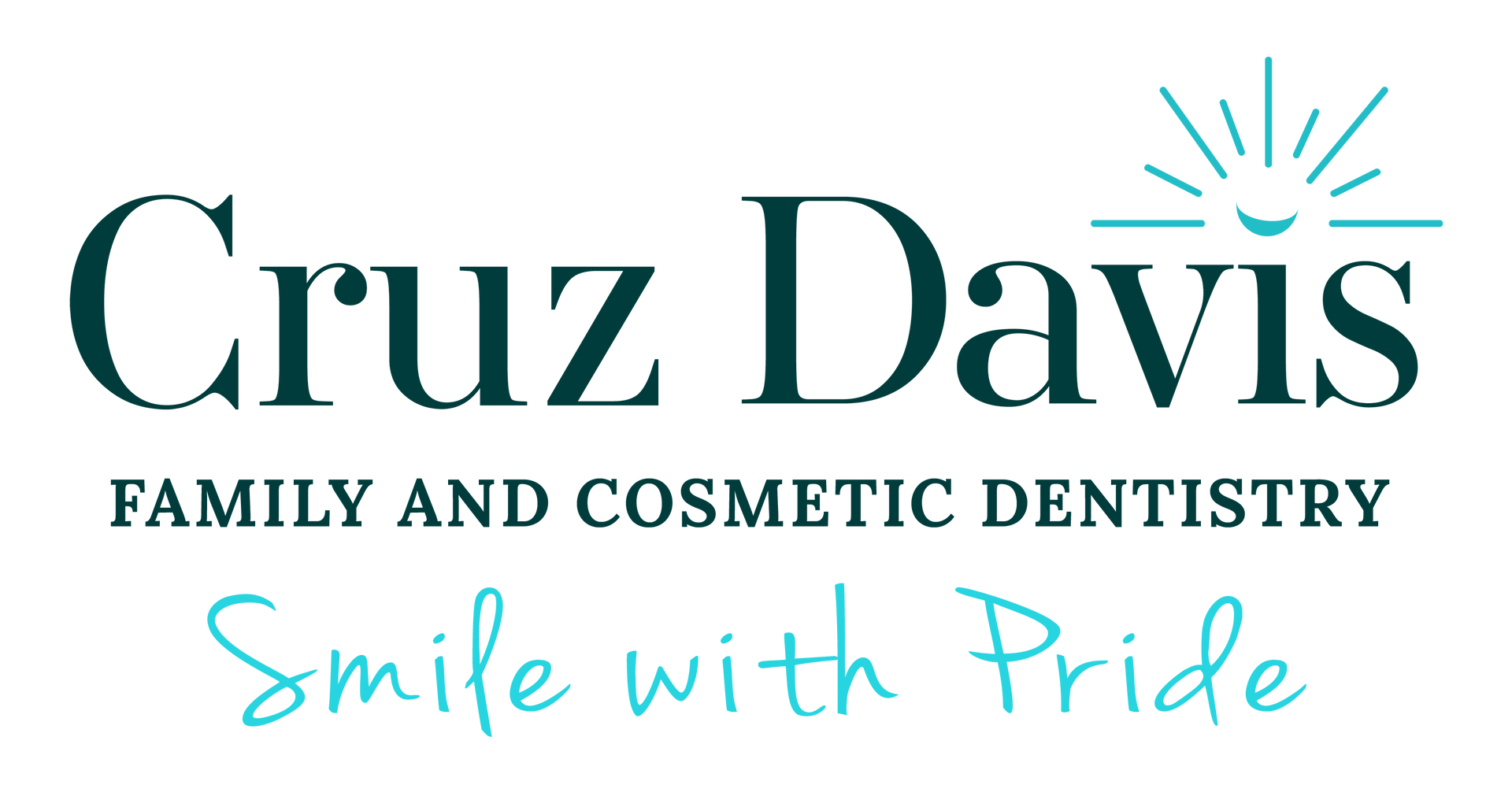Implant Dentist, Gainesville FL
Replace Broken or Missing Teeth with Fixed Solutions
All About Dental Implants
Doctor Cruz-Davis can regenerate bone tissue and is certified by International Congress of Oral Implantologists (ICOI) to place dental implants.
Several branches of science and technology converge in the amazing world of dental implantology. Dental implants are an effective and successful method of tooth replacement, where a titanium implant is used to act like your natural tooth root.
By drilling and anchoring an artificial replacement tooth directly into the jawbone, patients achieve an all-natural look without touching the glue or adhesive used with removable dentures. Don't worry, the process is painless and precise.
Regardless if you are missing one or many teeth, implant dentistry might be right for you. Give Cruz Davis Family & Cosmetic Dentistry a call today to schedule your dental consultation.
Dental implants are the perfect option for individuals who otherwise need dentures or complete restorations on the upper or lower teeth.
Benefits of Dental Implants:
- Patient cannot believe how dental implants feel natural and function just like real teeth, allowing you to once again do things without fear or inhibition that brought you joy like talking, singing, whistling, biting, chewing, and eating.
- Because dental implants look and feel so natural, they tend to return lost confidence and boost self-esteem. Smile for the camera!
- We use state-of-the-art technology and sterile titanium instruments to place dental implants, so the procedures are ultra safe and hygienic.
- Dental implants are made of amazing bio-compatible materials.
Did you know?
Some of the most important dental biotechnology was conceived and developed here in Gainesville, Florida! See
Bioglass.
How Implants Work
Dental implants are artificial tooth root replacements that screw or snap into fixed positions in the jaw. They can be used to replace individual teeth, or their abutments can be utilized to support fixed bridges for multiple missing teeth.
What is a Dental Implant?
The implant itself is a small titanium screw that fits comfortably inside of the jawbone and replaces the root of the missing tooth.
Crown Me!
Once the implant is in place, the dentist places an abutment, which is like the foundation of the tooth, akin to what the dentist would call a crown preparation to connect the bottom and top parts of the tooth. Once the implant and abutment are placed, Dr. Cruz-Davis will attach a crown to give you a natural-looking and functional prosthetic tooth. The crown is the part of the dental implant that looks like a real tooth, while the implant itself with the abutment hold everything firmly in place.
Schedule a comprehensive exam with our dentist to find out if you qualify for dental implants. They use amazing durable technology that can last a lifetime.
Bone Grafting
Missing teeth over a period of time can cause your jaw bone to atrophy, or resorb. This often results in poor quality and quantity of bone suitable for the placement of dental implants as well as long term shifting of remaining teeth and changes to facial structure. Most patients, in these situations, are not candidates for dental implants.
Growing Bone for Grafting
Fortunately, today we have the ability to grow bone where it is needed. This not only gives us the opportunity to place implants of proper length and width, but it also gives us a chance to restore functionality and aesthetic appearance.
Bone grafting can repair implant sites that have inadequate bone structure due to previous extractions, gum disease, or injuries. The bone is either obtained from a tissue bank or your own bone is taken from the jaw, hip or tibia (below the knee).
Sinus Grafting and Guided Bone Regeneration
Sinus bone grafts are also performed to replace bone in the posterior upper jaw. In addition, special membranes may be utilized that dissolve under the gum to protect the bone graft, as well as to encourage bone regeneration. We refer to this process as guided bone regeneration, or guided tissue regeneration.
Dental Implants
Science and Technology behind Dental Implants
What makes dental implants feel completely comfortable and secure? Doctors use a titanium implant fixture that, over time, actually fuses to the living bone cells of the jaw. This union forms a strong and durable anchor for your new prosthetic teeth, meaning that, unlike with dentures, your dental implants will have no slippage or other movement.
Dental Implants typically have Three Parts:
1) The implant: A screw that serves as a root for your new teeth. This is what permanently attaches to your jaw and, unlike dentures, allows no slippage or movement.
2) The abutment: A permanent (although removable by your dentist) connector above the implant that supports and holds a tooth or set of teeth.
3) The crown (or prosthetic tooth): The part of the tooth that you can see. It’s usually made of zirconium or porcelain for durability and aesthetics.
Are You Considering Dental Implants in Gainesville FL?
Learn how we can replace one or more teeth with dental implants
You can use dental implants to replace a single tooth, multiple teeth or a full upper and/or lower set of teeth. If you need to restore a full arch, you may be a perfect candidate for the full mouth treatment. Surgeons will place four implants and then attach a full arch of teeth, giving the procedure its name.
Let's start with dental implant basic education
While considering your options for teeth replacement you may have asked yourself, “What are dental implants and are they the solution for me?”
Dental implants are artificial tooth roots that provide a permanent base for fixed, replacement teeth. Compared to dentures, bridges and crowns, dental implants are a popular and effective long-term solution for people who suffer from missing teeth, failing teeth or chronic dental problems. Because they fit, feel and function like natural teeth, dental implants are quickly becoming a new standard in tooth replacement.
Placing Dental Implants is a Precise and Painless Procedure
Implant placement is performed with local anesthesia. The remaining root is removed and the gum tissue is gently displaced from the surrounding tissue. The dental implant site is prepared with small drills. Special equipment is used to gently place the tooth implant into the prepared site, after which the gums are replaced over the implant with sutures. A temporary tooth replacement is placed in the space where the tooth was removed. Post-operative discomfort is minimal. The sutures are removed in a week, and oral hygiene is resumed.
What exactly is a Dental Implant?
Each natural tooth in the human mouth consists of a root and a crown. If you compare natural teeth to implant-supported replacement teeth, you’ll see they have the same basic parts. Both have a crown (the visible part used to chew food), and both have a root that holds the tooth securely under the gum and is anchored into the jaw. The implant is made of titanium, the same time-tested material used by surgeons for artificial joints. When you lose a tooth, you lose both the root and the crown. To replace the tooth, the surgeon first replaces the root with a small dental implant.
What is the difference between the implant, abutment, and crown?
Time is allowed for bone to heal and grow around the dental implant. The bone bonds with the titanium, creating a strong foundation for artificial teeth. A support post (abutment) is then placed on the implant and a new replacement tooth (crown) is placed on top of the abutment. In many cases a temporary replacement tooth can be attached to the implant immediately after it is placed. If all of your teeth are missing, a variety of treatment options are available to support the replacement teeth.
Immediate Dental Implants
Why wait if you don't have to?
"Immediate dental implants," or the placement of tooth implants at the time of extraction, is an amazing modern method of implant placement. This technique can be considered when a single upper front tooth is traumatized, when one or two teeth have advanced decay, or when the remaining roots are too short to support a crown.
Why choose immediate dental implants for tooth replacement?
The purpose of using immediate dental implants for tooth replacement is to maintain as much bone volume as possible by preserving bone height and width. The benefits to the patient after restoration of dental implants are a beautiful, natural-looking tooth without cutting down healthy adjacent teeth and being able to eat in comfort without the fear of having the tooth loosen or fall out.
Am I eligible for immediate dental implants?
Our implant dentist, Dr. Cruz-Davis, will determine on a case-by-case basis whether an individual is a candidate for the immediate dental implants method of replacing missing teeth. Our doctor will look at the involved tooth and then take an xray and examine the adjacent teeth for periodontal disease. Impressions of the teeth will aid in determining one's prognosis. Additional X-rays may be necessary to determine the exact bone width and height, and the root position.
In perfect harmony with your new tooth or teeth
In the upper jaw, bone grows and adheres to the tooth implant within five to six months, while the immediate dental implants in the lower jaw require three to four months for proper bone formation. After healing, there is a series of visits when an implant dentist will make a tooth that will be attached to the implant. Within a few weeks after receiving the implant-supported crown, the implant is typically so secure, strong, and comfortable that patients consider the restoration as their own tooth, rather than an implant.
Implant Supported Dentures and Bridges
If you are looking for a durable and comfortable way to replace missing teeth, an implant supported denture or bridge is a solution for you to consider. Implant supported dentures make it easier to eat your favorite meals and engage in normal daily activities since they will remain securely in your mouth. You will not need to worry about them coming loose or slipping out of place while eating, speaking, or engaging in high-impact activities. Instead, you can rest assured that your teeth will be secure regardless of what you do. Not only will this prevent unnecessary embarrassment, but it will also make life more comfortable since your dentures will not be rubbing against your gums, causing irritation.
Sinus Lift or Sinus Augmentation
A sinus lift, or sinus augmentation, is a common bone grafting procedure often needed for patients with bone loss in the upper jaw. This surgical procedure creates space in the sinus cavity to support dental implants. By growing and strengthening the bone in this area, we can successfully place dental implants to replace missing teeth.
Dr. Cruz-Davis performs sinus lift procedures in his Gainesville FL dental office when there is not enough bone in the jaw to support implants. The aim of a sinus lift is to grow bone in the floor of the maxillary sinus, which can be described as an empty air-filled space behind the cheeks, on top of the upper teeth.
Socket Preservation
Preserving Your Jaw Bone after Extraction
Several techniques can be used to preserve the bone and minimize bone loss after an extraction. In one common method, the tooth is removed and the socket is filled with bone or bone substitute. The site is then covered with gum tissue, artificial membrane, or tissue-stimulating proteins to encourage your body’s natural ability to repair the socket. This eliminates shrinkage and collapse of surrounding gum and facial tissues. The newly formed bone in the socket also provides a foundation for a dental implant. If your dentist has recommended tooth removal, be sure to ask if socket preservation is necessary. This is particularly important if you are planning on replacing the front teeth.
Sometimes teeth must be removed because of pain, infection, bone loss, or tooth fracture. The bone that holds the tooth in place may be damaged by disease and/or infection. In addition, after teeth are extracted, the surrounding bone and gums can shrink and recede very quickly, resulting in unsightly defects and collapse of the lips and cheeks.
These jaw defects can complicate restorative dentistry, whether your treatment involves dental implants, bridges, or dentures. However, jaw deformities from tooth removal can be prevented and repaired by a procedure called socket preservation. Socket preservation can greatly improve your smile’s appearance and increase your chances for successful dental implants for years to come.
Cancer Survivors
Restoring Mouth Function and Confidence with a New Smile

Helping Survivors Smile for Life
- Dr. Cruz-Davis, our Gainesville FL dentist, is passionate about helping restore cancer survivors' smiles and confidence. Treatment for medical conditions like cancer necessitates specialized dental care in order to maintain proper oral hygiene. Cancer survivors oftentimes require rehabilitative dental services to treat ongoing symptoms like dry mouth, tooth decay, and tooth loss. Such conditions can be scary and uncomfortable, causing both functional and aesthetic issues.
- Our dental team in Gainesville FL understands the medical and psychological journey associated with cancer treatment and survivorship, so please read on to learn about how dental implants can help survivors who suffer from missing teeth.
Cancer and Oral Health
- Many symptoms associated with cancer treatment also relate to oral health issues, as chemotherapy and radiation therapy tend to ravage a person's oral environment. Dry mouth, severe dental decay, and tooth loss can create both functional and aesthetic issues that need to be addressed by a dentist. In addition to the physical ramifications of treatment, cancer survivors often suffer from psychological issues as well, like low self-concept, that tend to negatively affect emotional and physical health.
- After battling through harsh treatments, cancer survivors may continue to mitigate a number of medical conditions that affect daily life. Dr. Cruz-Davis, our dynamic Gainesville dentist, possesses great passion and expertise in the area of dental care for cancer patients and survivors. Our dentist takes pride in providing specialized treatments that can greatly improve a cancer survivor's quality of life. If you are a survivor suffering from missing teeth, you should consider how dental implants can positively impact your daily life.
Healing Power of a Smile Makeover
- Cancer survivors deserve to rejoice, and in our opinion, a new smile is the perfect way to celebrate! Replacing missing teeth with dental implants is important both functionally and aesthetically. After living in a cocoon of intense cancer treatments, a smile makeover can be a powerful psychic healing process that celebrates a survivor's journey. Dental implants for cancer survivors aims to restore mouth functionality, boost survivor confidence, and renew self-esteem.
Contact Our Gainesville Dental Office Today to Schedule Your Dental Implant Consultation!








